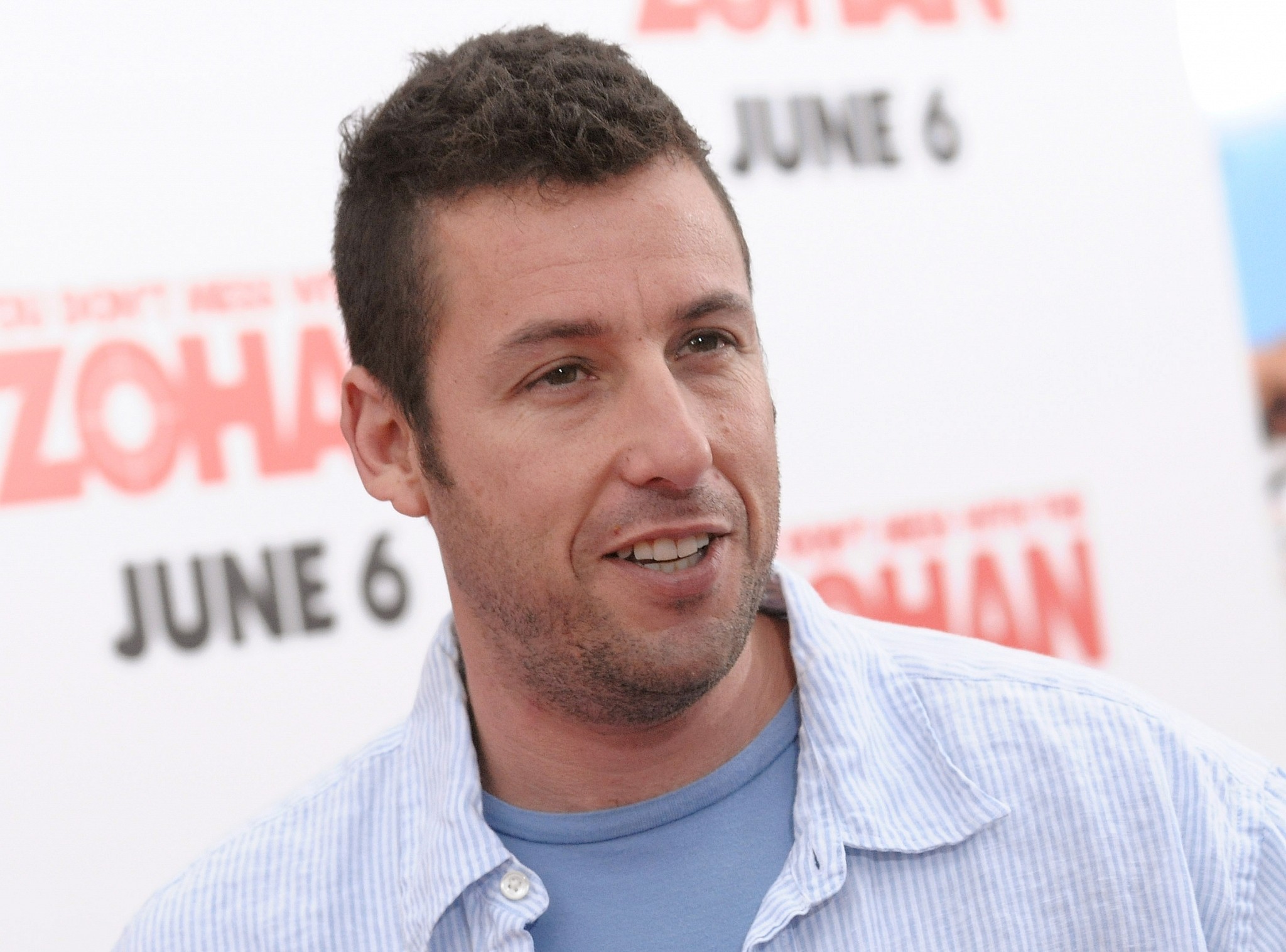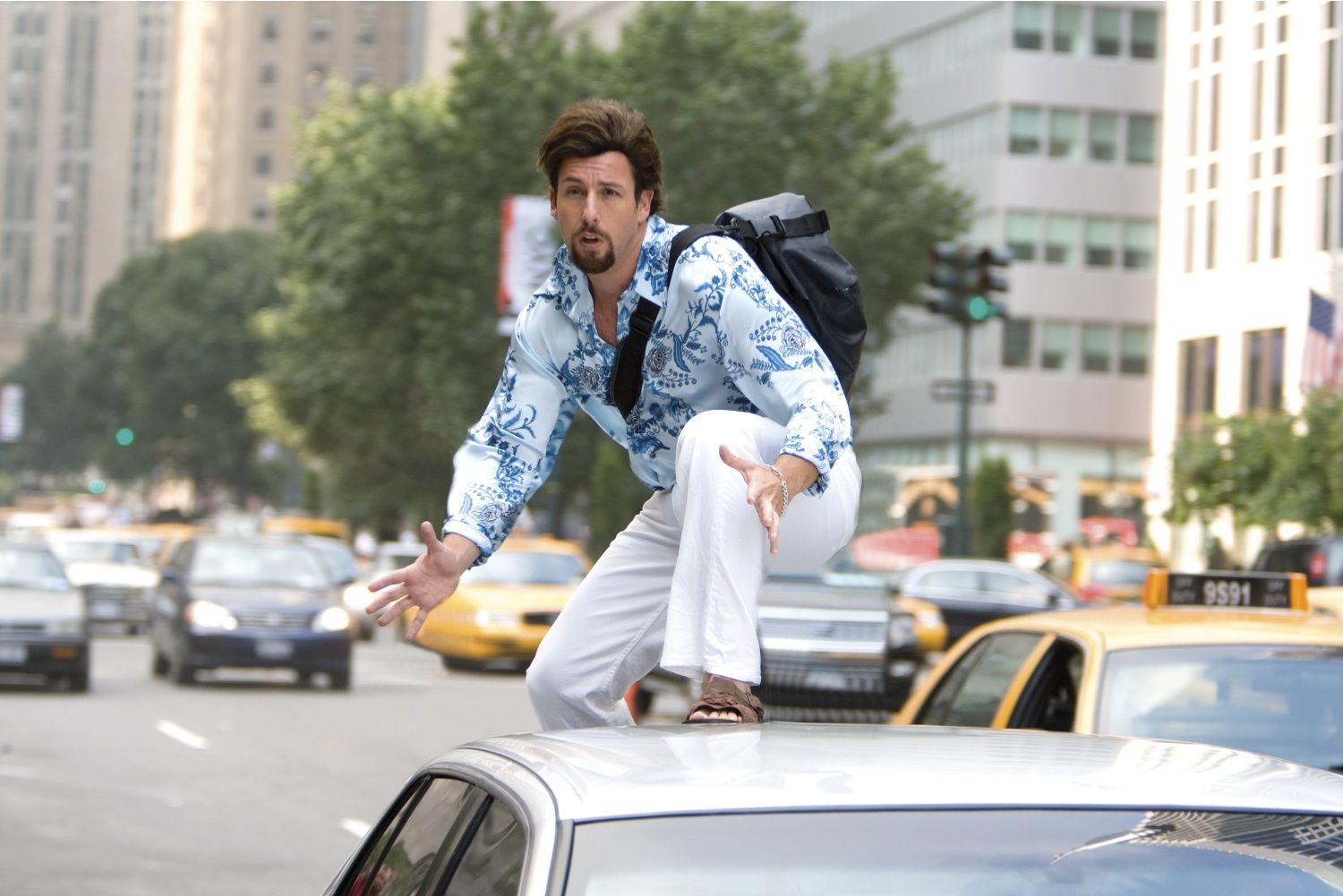The Zohan’s Transformation

The Zohan’s journey from an elite Israeli soldier to a New York City hairdresser is a central theme in the film “You Don’t Mess with the Zohan.” This transformation is not simply a change in profession but a profound shift in his identity, motivations, and aspirations. The film explores the complexities of this transition, showcasing how external factors and internal conflicts shape his character development.
The Zohan’s Initial Motivations and Aspirations
Initially, the Zohan is driven by his patriotic duty and a desire to serve his country. He is a skilled and dedicated soldier, proud of his abilities and committed to protecting Israel. He dreams of becoming a “legend” and achieving greatness in the Israeli Defense Forces. The Zohan’s aspirations are deeply rooted in his national identity and a sense of duty to his homeland.
The Turning Point: A Desire for a Different Life
The Zohan’s life takes a dramatic turn when he witnesses a brutal act of violence perpetrated by a Palestinian terrorist. This event triggers a profound change in his perspective. The Zohan begins to question the nature of violence and the purpose of his life as a soldier. He yearns for a peaceful existence, far removed from the conflicts and bloodshed he has witnessed. This desire for a different life motivates him to fake his death and escape to New York City.
The Zohan’s Transformation into a Hairdresser
The Zohan’s chosen profession in New York City is a stark contrast to his previous life as a soldier. He chooses to become a hairdresser, a profession traditionally associated with femininity and peace. This choice reflects his desire to embrace a different lifestyle and escape the violence of his past. However, his transformation is not without its challenges. The Zohan struggles to adapt to his new environment and must confront his own preconceived notions about masculinity and femininity.
Key Events Shaping the Zohan’s Character Development
Several key events contribute to the Zohan’s transformation:
- The Encounter with the Palestinian Terrorist: This event triggers a profound change in the Zohan’s perspective on violence and his desire for a peaceful life.
- Meeting the Salon Owner, Dalia: Dalia represents a new world of peace and beauty for the Zohan. She encourages him to embrace his feminine side and find fulfillment in his new profession.
- His Relationship with the Palestinian Neighbor, Omar: The Zohan’s friendship with Omar challenges his preconceived notions about Palestinians and helps him to see beyond the conflict.
- The Confrontation with the Phantom: This final confrontation forces the Zohan to confront his past and choose between violence and peace. He ultimately chooses peace, proving his commitment to his new life.
Humor and Cultural Stereotypes

Adam Sandler’s “You Don’t Mess with the Zohan” employs humor heavily reliant on cultural stereotypes, generating laughter through exaggerated representations of Israeli and Palestinian cultures. While the film aims to be lighthearted and entertaining, it’s important to analyze how these stereotypes can be problematic and perpetuate harmful generalizations.
Cultural Stereotypes and Comedic Elements
The film utilizes stereotypes to create comedic scenarios and characters. For instance, the portrayal of Israelis as strong, muscular, and skilled in combat is a recurring theme. Zohan’s exaggerated physique and his constant need to prove his strength, even in mundane situations, are played for laughs. Similarly, Palestinian characters are often depicted as angry, violent, and prone to conflict, reinforcing negative perceptions. The film’s portrayal of the conflict between Israelis and Palestinians relies on stereotypes, simplifying a complex reality into a comedic battle between opposing forces.
Examples of Stereotypical Jokes and Scenarios
- Zohan’s exaggerated accent and broken English are used for comedic effect, playing on the stereotype of Israelis speaking with a heavy accent.
- The film’s portrayal of Palestinian characters often involves them speaking in broken English or using Arabic phrases that are mispronounced, reinforcing the stereotype of Palestinians as foreigners with limited English skills.
- The film’s portrayal of the conflict between Israelis and Palestinians relies heavily on stereotypes, simplifying a complex reality into a comedic battle between opposing forces.
- The scene where Zohan is confronted by a group of Palestinians who mistake him for a terrorist, only to be surprised by his friendly demeanor, relies on the stereotype of Palestinians being quick to judge and distrustful of Israelis.
- The film also relies on stereotypes about Israeli culture, such as their love for hummus and falafel, and their tendency to be overly emotional and dramatic.
Portrayal of Israeli and Palestinian Cultures
The film’s portrayal of Israeli and Palestinian cultures is highly contrasting, with each culture depicted through exaggerated stereotypes. Israelis are portrayed as strong, confident, and technologically advanced, while Palestinians are often shown as angry, violent, and backward. This contrasting portrayal reinforces existing stereotypes and simplifies a complex reality into a comedic battle between opposing forces.
Effectiveness of Stereotypical Humor, Adam sandler you don’t mess with the zohan
While the film’s use of stereotypes can be effective in generating laughs, it’s important to consider the potential harm of perpetuating these generalizations. By reducing complex cultures to simplistic caricatures, the film risks reinforcing negative perceptions and contributing to a lack of understanding and empathy between Israelis and Palestinians.
The Zohan’s Relationships: Adam Sandler You Don’t Mess With The Zohan

The Zohan’s relationships with his family, friends, and romantic interests play a significant role in his journey of self-discovery and personal growth. Throughout the film, he navigates complex dynamics with various characters, leading to both humorous and poignant moments. These relationships act as catalysts for his transformation from a skilled Mossad agent to a humble hairdresser in New York City.
The Zohan’s Family
The Zohan’s relationship with his father, Eli, is a key aspect of his personal development. Eli, a stern and traditional patriarch, expects the Zohan to follow in his footsteps and become a Mossad agent. The Zohan, however, dreams of a different life, one filled with hairdressing and fashion. This conflict between tradition and personal ambition creates tension between them. Eli initially disapproves of the Zohan’s chosen path, believing it to be a betrayal of his family’s legacy. However, as the Zohan demonstrates his dedication and success in his new career, Eli gradually softens his stance, eventually coming to accept and even support his son’s decision.
The Zohan’s Friends
The Zohan’s friendships, particularly with his fellow Mossad agent, Phantom, are characterized by a mix of camaraderie and competition. The Zohan and Phantom share a deep bond forged through years of training and missions together. Their relationship is marked by playful banter and a healthy rivalry, often leading to humorous situations. The Zohan’s friendship with Phantom provides him with a sense of belonging and support, especially as he adapts to his new life in New York City.
The Zohan’s Romantic Interests
The Zohan’s romantic interests are explored through his interactions with Dalia, a Palestinian woman who initially despises the Zohan for his past as a Mossad agent. Their relationship is initially fraught with tension and misunderstanding, but as they get to know each other, they begin to see beyond their preconceived notions. The Zohan’s relationship with Dalia forces him to confront his own prejudices and biases, leading to a deeper understanding of the complexities of the Israeli-Palestinian conflict. This relationship highlights the importance of communication and empathy in overcoming cultural differences and building bridges between seemingly opposing sides.
Adam sandler you don’t mess with the zohan – In “You Don’t Mess with the Zohan,” Adam Sandler’s character, a skilled Israeli secret agent, trades in his life of espionage for a new life as a hairdresser in New York City. The film’s comedic heart lies in the juxtaposition of Zohan’s serious, even violent past with his new, surprisingly gentle career.
While Zohan’s transition may seem unexpected, it’s not unlike the metamorphosis of rock legend David Lee Roth , who, after years of fronting Van Halen, embarked on a solo career with a more introspective, almost philosophical approach. Both Zohan and Roth, in their own ways, demonstrate that even the most unexpected changes can lead to a new and exciting chapter in life.
The scene in “You Don’t Mess with the Zohan” where Adam Sandler’s character, Zohan, effortlessly juggles his barber shears while shaving a customer, reminded me of the intricate synchronization required in concurrent computing. It’s a concept pioneered by Tim Herlihy , a renowned computer scientist who revolutionized how multiple processes interact within a system.
Zohan’s multitasking skills, though comedically exaggerated, highlight the complexities of managing concurrent tasks, just as Herlihy’s work laid the foundation for efficient and reliable parallel processing.
